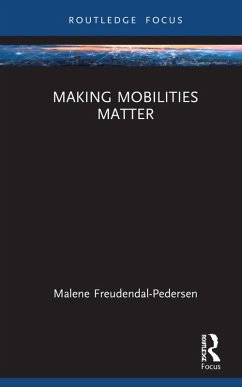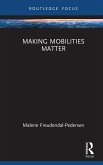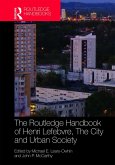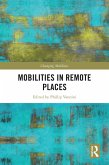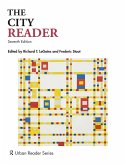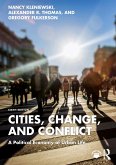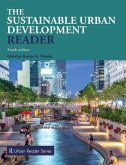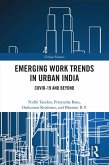Recognizing the importance of culture and everyday life in shaping urban mobilities, it examines how contemporary communities exist, expand, and are sustained through localized and virtual forms of sharing responsibility, exchanging life experiences, creating meaning, and giving ontological security to people's lives. It also offers perspectives on the emotional aspect of mobilities in everyday life and how utopias can respond to these emotions. Making Mobilities Matter ends with a discussion of the prospects for urban mobilities in the future and how these issues are vital in battling climate change.
Making Mobilities Matter is essential reading for students and researchers seeking to understand the importance of mobilities in sustainable urban development and tackling climate change.
Dieser Download kann aus rechtlichen Gründen nur mit Rechnungsadresse in A, B, BG, CY, CZ, D, DK, EW, E, FIN, F, GR, HR, H, IRL, I, LT, L, LR, M, NL, PL, P, R, S, SLO, SK ausgeliefert werden.
Ole B. Jensen, Deputy Director of Centre for Mobilities and Urban Studies (C-MUS), Aalborg University, Denmark
'Making Mobilities Matter demonstrates why mobilities thinking is essential for addressing some of the biggest challenges of our time. Freudendal-Pedersen invites us to take seriously the richness and complexity of people's mobile lifeworlds that are insufficiently addressed by narrow economic or technocratic approaches to planning and design.'
David Bissell, Associate Professor of Geography, The University of Melbourne, Australia
'In clear-eyed and accessible prose Making Mobilities Matter invites us into the conversation on the connection between everyday mobilities and how we might find new pathways to achieve sustainable futures. Focusing on communities, meanings, and emotions, Freudendal-Pedersen's unique approach reminds us that we hold the future in our own hands. To change unsustainable mobilities requires that we reorganize everyday life, and that calls for alternative approaches toward future planning, in and with people. Through empirical research on mobilities practices and futures, this important book reveals a new paradigm in urban planning and changing mobilities.'
Mimi Sheller, Dean of the Global School, Worcester Polytechnic Institute, USA

